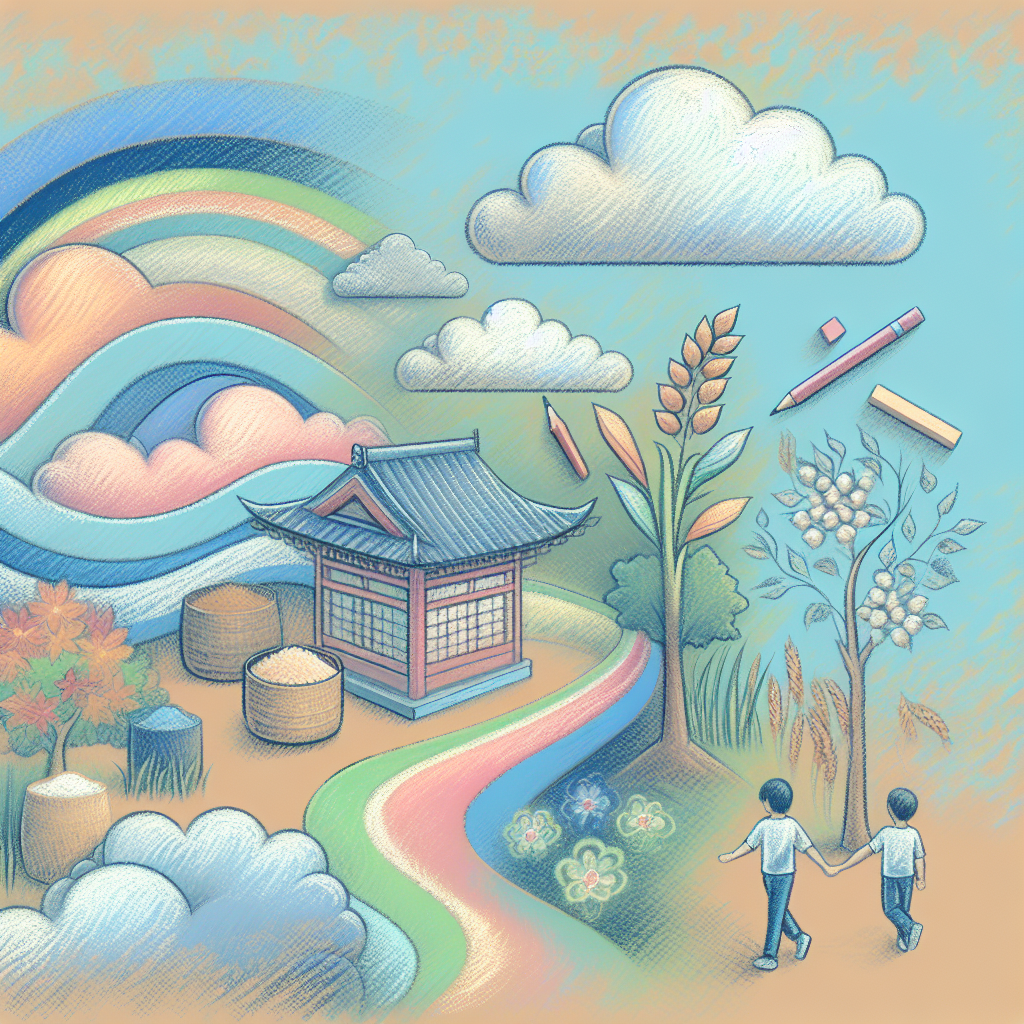Rice as a Spiritual Foundation: Understanding Its Role in Japanese Culinary Heritage
The Importance of Rice in Japanese Food Culture
At the heart of Japanese food culture lies rice, serving not only as a staple but also as a spiritual foundation. This revered grain has been considered sacred by the Japanese for centuries, playing a pivotal role in agriculture and daily life. Traditional Japanese cuisine, particularly washoku, showcases a variety of dishes centered around rice, reflecting the thoughts and lifestyles of the Japanese people.
Rice holds significance as an offering during festivals and special occasions. For instance, during the New Year, mochi is made as a gesture of gratitude to family and deities. In this context, rice transcends mere sustenance, becoming a symbol of spiritual connection. Through rice, the Japanese have nurtured harmony with nature and fostered social bonds within their communities.
Moreover, rice production is deeply linked to Japan’s climate and geography. The differences in sake rice and varieties cultivated in various regions resonate with local cultures and climates, thereby making rice an essential piece for understanding Japan’s regional characteristics.
Celebrating and Gratitude towards Rice through Festivals
In Japan, rice takes on an even deeper meaning through festivals and events. For instance, in autumn, harvest festivals celebrate the bounty of rice. Expressing gratitude for the rice harvest is a traditional custom, vital for promoting sustainable agriculture. These harvest festivals gather communities together, where meals centered around rice are shared, creating moments of unity among participants.
These celebrations signify not only the joy of enjoying rice but also the bonding of communities. People reaffirm their connections through rice, recognizing the value of living together. Even in modern society, these traditions have a significant impact, contributing to strengthened communication among family and friends.
Additionally, rice-based dishes often carry special meanings. Dishes like ehomaki and onigiri are traditionally enjoyed by families on special occasions. These meals allow one to appreciate the depth of the culture developed alongside rice, prompting a reexamination of the significance of food.
The Deep Connection Between Japanese Cuisine and Rice
Within Japanese food culture, rice is expressed in various forms and serves as a foundational element in cooking. Rice is not just a staple but also enhances many dishes. For example, sushi, nigiri, and rice flour-based sweets showcase an extensive range of culinary diversity.
Among these, sushi stands out as a globally renowned Japanese dish, where the quality of rice is crucial for flavor. The vinegared rice used in sushi harmonizes its sweetness with the tang of vinegar, allowing diners to savor its profound taste with every bite. Understanding how rice characteristics contribute to Japanese cuisine becomes clearer through such dishes.
Furthermore, rice’s flavor and texture make it highly compatible with other ingredients. When paired with fresh local fish or seasonal vegetables, rice’s appeal is elevated. The synergy between rice and seasonal ingredients showcases its versatility and enhances its cultural value in culinary traditions.
The Connection of Rice to the Heart
In the lives of the Japanese, rice offers more than sustenance; it provides a spiritual connection. Consuming rice during daily meals strengthens the bonds among family and friends. Particularly at family gatherings, sharing rice creates a sense of warmth and closeness.
Moreover, rice serves as emotional nourishment. For example, onigiri represents love and consideration through its shape and form. A lovingly prepared onigiri embodies the sentiments and effort of the maker, offering comfort to many. Thus, the expression of love and thoughtfulness through rice is integral to the Japanese culture.
Additionally, the process of cultivating rice and the effort involved provides profound life lessons for the Japanese. Emphasizing harmony with nature and approaching it with compassion leads to a deeper sense of fulfillment. Understanding the deeper meanings associated with rice symbolizes a mentally enriched life.
In conclusion, Japanese rice extends far beyond being a mere ingredient. It encapsulates cultural richness, spiritual significance, and community bonds, embodying what it means to engage with Japan’s culinary traditions. To enjoy rice is to connect with the history and philosophy of Japan, showcasing how rice symbolizes the very essence of the Japanese way of life.


